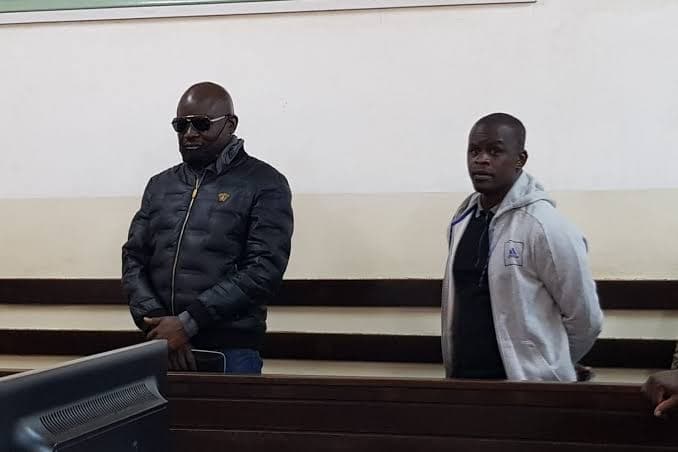We're loading the full news article for you. This includes the article content, images, author information, and related articles.
Prominent lawyer Willis Otieno advocates for civilian police boards to enhance accountability and prevent escapes, as the DCI intensifies its search for Collins Jumaisi, the prime suspect in the Kware dumpsite killings, who remains at large after escaping police custody.

The Directorate of Criminal Investigations (DCI) has launched a renewed appeal, offering a KSh 1 million cash reward for information leading to the re-arrest of Collins Jumaisi Khalusha, the primary suspect in the Kware dumpsite killings. Jumaisi, accused of the brutal murders of 42 women whose bodies were discovered at the Kware dumpsite in Nairobi, escaped from Gigiri Police Station in August 2024, just before his scheduled arraignment. He escaped alongside 12 other suspects, including undocumented Eritrean migrants, after cutting through a wire mesh at the station's basking bay.
The DCI has urged the public to report any credible information through their toll-free hotline 0800 722 203, WhatsApp number 0709 570 000, or by visiting the nearest police station.
In response to Jumaisi's escape and other incidents of police misconduct, lawyer Willis Otieno has intensified his call for the establishment of civilian police boards. Otieno argues that such boards, drawn from the community, would provide essential oversight and prevent similar escapes. He likens these proposed 'People's Boards' to the Boards of Management in schools and Boards of Governors in health centres, emphasizing that institutions wielding significant power, like police stations, require direct citizen supervision.
Otieno, the Safina Party Deputy Leader, has consistently criticised the current police reform approach, stating that merely equipping officers with modern weaponry without structural accountability risks deepening state violence. He advocates for the urgent implementation of Article 239 of the Constitution, which mandates that the police remain subordinate to civilian authority. His proposals include empowering these committees to inspect firearms logs, review use-of-force incidents, and question officers on duty.
Kenya already has an Independent Policing Oversight Authority (IPOA), established in 2011 under the IPOA Act, to provide civilian oversight over the National Police Service. IPOA's mandate includes investigating police misconduct, ensuring accountability, promoting professional policing, and monitoring police operations. The Authority also reviews investigations by the police's Internal Affairs Unit and can take over cases if dissatisfied with their progress.
Despite IPOA's existence, challenges persist. Reports indicate that police abuse of civilians, including extrajudicial killings and enforced disappearances, has been on the rise. A 2019 IPOA report documented over 3,000 cases of police abuse, a six-fold increase from 2013, with misuse of firearms and excessive force identified as major concerns. Public awareness of IPOA and its role in policing accountability also remains a challenge.
The renewed debate on police oversight comes at a critical time, with stakeholders urging clarity on the timelines, costs, and safeguards associated with proposed reforms. The DCI's intensified manhunt for Jumaisi underscores the urgency of addressing security lapses and ensuring justice for victims. The escape of Jumaisi and 12 others from Gigiri Police Station led to the suspension of eight police officers, with five subsequently charged in court over the incident.
Interior Cabinet Secretary Kipchumba Murkomen has previously affirmed the government's commitment to accountability, stating that rogue behaviour within the police service will not be tolerated. However, civil society groups and legal experts continue to press for more robust, citizen-led oversight mechanisms to foster public trust and prevent future abuses.
The ongoing manhunt for Collins Jumaisi and the public discourse surrounding police accountability are likely to shape future policy decisions regarding law enforcement oversight in Kenya. The effectiveness of the DCI's reward in securing Jumaisi's re-arrest will be closely watched, as will any concrete steps taken towards implementing broader civilian oversight mechanisms as advocated by legal experts like Willis Otieno.
Keep the conversation in one place—threads here stay linked to the story and in the forums.
Sign in to start a discussion
Start a conversation about this story and keep it linked here.
Other hot threads
E-sports and Gaming Community in Kenya
Active 9 months ago
The Role of Technology in Modern Agriculture (AgriTech)
Active 9 months ago
Popular Recreational Activities Across Counties
Active 9 months ago
Investing in Youth Sports Development Programs
Active 9 months ago
Key figures and persons of interest featured in this article